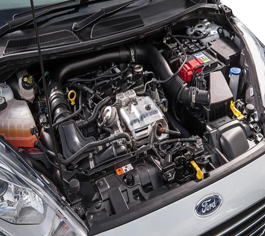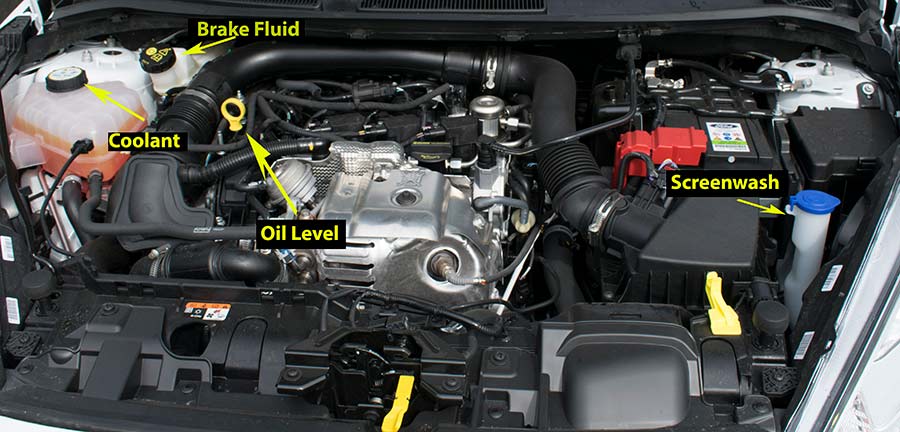How a Ford Fiesta Engine Tune-Up Can Improve Your Car’s Performance
How a Ford Fiesta Engine Tune-Up Can Improve Your Car’s Performance
Blog Article
The Future of Engines: Innovations Driving Lasting Power Solutions
As the auto industry browses the crucial change in the direction of sustainability, the future of engines is progressively defined by groundbreaking technologies. Electric engine advancements, together with appealing advancements in hydrogen gas cells and biofuels, are improving the landscape of power solutions.
Electric Engine Advancement
The development of electric engine growths indicates a critical shift in the automobile and aerospace sectors, driven by the immediate need for lasting options to nonrenewable fuel sources. This change is defined by considerable developments in battery innovation, power electronic devices, and electric motor design, which jointly improve the efficiency and efficiency of electric engines.
Recent advancements have actually resulted in the production of lighter, more energy-dense batteries, such as lithium-silicon and solid-state batteries, which promise longer varieties and much shorter billing times. Furthermore, improvements in electrical motor efficiency, such as the use of permanent magnets and progressed cooling systems, make it possible for electrical engines to operate properly under differing conditions. These enhancements not only improve vehicle efficiency yet also add to a reduction in total power intake.
Furthermore, the assimilation of sophisticated software program algorithms has enhanced energy administration in electric automobiles, enabling for regenerative stopping and predictive charging methods. As makers progressively accept electric propulsion, the aerospace and automobile sectors are experiencing a standard change in the direction of greener technologies. This advancement not only fulfills regulatory needs yet also lines up with customer preferences for eco-friendly transportation remedies, strengthening electric engines as a foundation of future sustainable flexibility.
Developments in Biofuels
As the automobile and aerospace industries progressively prioritize lasting power resources, improvements in biofuels arise as a complementary service to electric engines. Biofuels, stemmed from organic materials such as crops, waste, and algae, offer a cutting-edge method for minimizing greenhouse gas emissions and dependence on fossil gas.
Recent research study has actually concentrated on improving the efficiency and sustainability of biofuel production. Second-generation biofuels utilize non-food feedstocks, lessening competition with food supply and minimizing ecological influence. Additionally, advancements in synthetic biology have actually enabled the design of microbes to produce biofuels much more successfully, causing higher returns and lower production prices.
Furthermore, the development of drop-in biofuels enables seamless assimilation right into existing facilities, making it possible for a smoother transition for industries traditionally depending on nonrenewable fuel sources. ford fiesta engine. These gas can be used in existing engines without alterations, promoting their adoption across different fields
Investments in biofuel technology, along with supportive policies, are vital to drive technology and scalability. As the worldwide area looks for to combat climate modification, biofuels supply a pragmatic, instant option that aligns with the overarching goal of sustainability in transportation and aeronautics.
Hydrogen Fuel Cell Innovation
A growing variety of scientists and companies are checking out hydrogen fuel cell modern technology as a viable option to standard source of power in transportation and energy systems. This innovation transforms chemical energy from hydrogen right into power through an electrochemical response, with water as the only result, making it an eco-friendly choice.
The core of hydrogen gas cells is the gas cell stack, where hydrogen particles are split right into protons and electrons. The flow of electrons creates electricity, while protons relocate with a membrane to combine with oxygen from the air, developing water. This process leads to high efficiency and reduced discharges, positioning hydrogen gas cells as an essential player in the change to lasting energy.
Significant advancements have been made in boosting the resilience and performance of gas cells, along with lowering prices via ingenious production techniques. Additionally, the find this growth of hydrogen manufacturing approaches, such as electrolysis powered by sustainable power resources, boosts the sustainability of the total system. As framework for hydrogen refueling expands and production approaches become more effective, hydrogen gas cell innovation holds terrific guarantee for decarbonizing different markets, consisting of heavy-duty transport and stationary power generation.
Hybrid Equipments and Their Impact
Crossbreed systems represent a significant evolution in sustainable engine modern technology, combining traditional inner burning engines with electric propulsion to This Site optimize energy performance and lower emissions (ford fiesta engine). This double approach allows vehicles to make use of both source of power, allowing higher versatility in energy intake and minimizing dependence on nonrenewable fuel sources

In addition to ecological benefits, crossbreed systems provide customers a practical shift towards fully electric cars. They reduce array anxiousness by incorporating the convenience of gas with the benefits of electric propulsion, making them an appealing alternative for a bigger target market. As producers spend in hybrid modern technology, the advancement of more sophisticated battery systems and lightweight products remains to improve performance. On the whole, crossbreed systems stand for a crucial step in the direction of achieving lasting transport and addressing the immediate need for eco friendly power options.
The Duty of AI in Engine Design
Leveraging sophisticated formulas and machine knowing techniques, the auto market is increasingly integrating expert system (AI) into engine style procedures. AI enhances the effectiveness and efficiency of style by evaluating substantial datasets to determine optimal arrangements and performance specifications. This ability allows designers to mimic numerous operating conditions and predict engine behavior under multiple scenarios, considerably lowering the moment and cost related to conventional prototyping approaches.
Furthermore, AI promotes the advancement of innovative materials and burning processes tailored for sustainability. By enhancing gas effectiveness and minimizing exhausts, AI-driven styles straighten with worldwide campaigns intended at minimizing the carbon footprint of automotive engines. Machine knowing algorithms can also forecast upkeep requirements, leading to improved reliability and long life of engine components.
Additionally, AI contributes in the assimilation of electrification technologies, such as hybrid systems, where it can maximize battery management and energy recovery processes. As the sector relocates towards more sustainable power solutions, the role of AI in engine style becomes progressively vital, driving advancement and improving the efficiency of future engines. Inevitably, the partnership in between AI and engine design advertises a brand-new age of smarter, cleaner, and more effective automobile innovations.

Final Thought
In final directory thought, the future of engines is being shaped by a merging of ingenious modern technologies that prioritize sustainability. Electric engine developments, biofuel growths, hydrogen fuel cells, and hybrid systems collectively add to a significant reduction in exhausts and ecological impact.
Electric engine innovations, along with promising advancements in hydrogen fuel cells and biofuels, are reshaping the landscape of power remedies. In addition, renovations in electric motor performance, such as the use of irreversible magnets and progressed cooling systems, enable electric engines to run effectively under varying conditions. By enhancing gas effectiveness and lessening discharges, AI-driven layouts line up with international initiatives intended at minimizing the carbon impact of auto engines. As the sector relocates in the direction of more lasting power remedies, the function of AI in engine layout becomes increasingly vital, driving development and boosting the efficiency of future engines. Electric engine innovations, biofuel advancements, hydrogen gas cells, and hybrid systems collectively contribute to a considerable reduction in exhausts and ecological impact.
Report this page